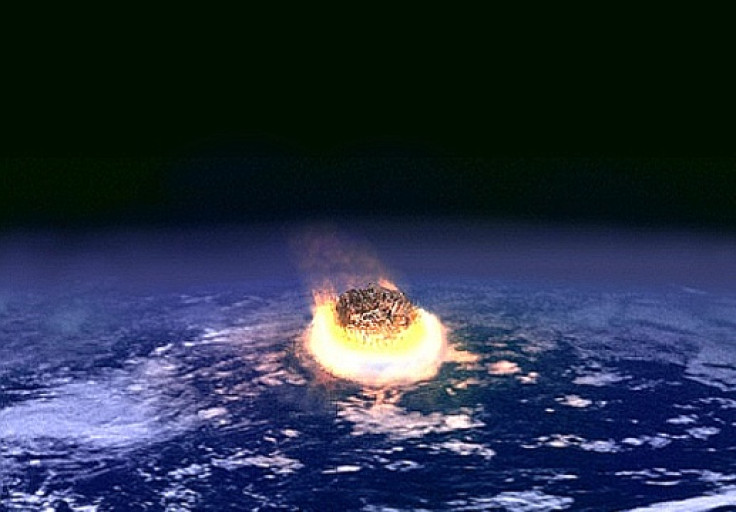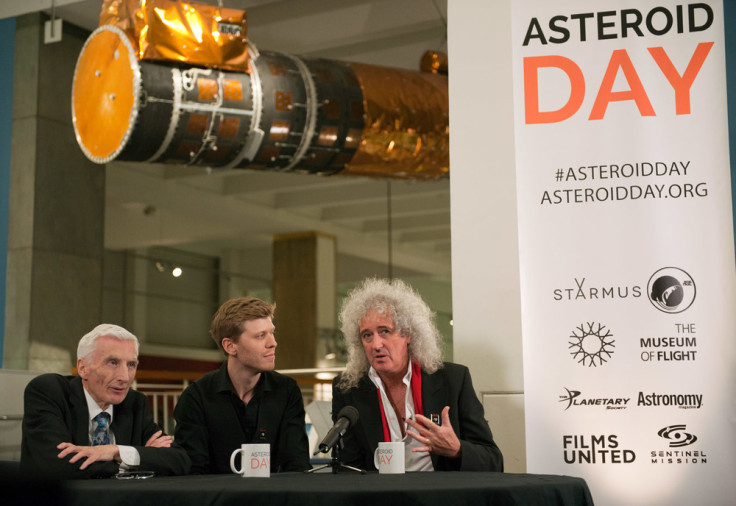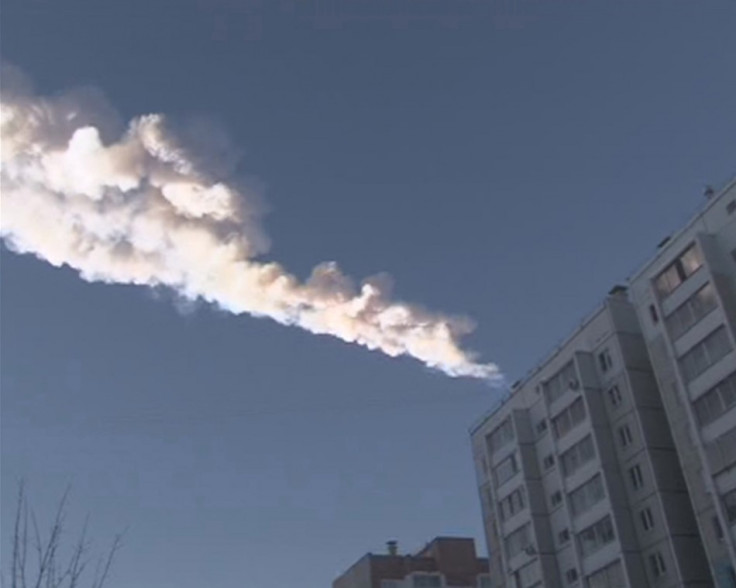Asteroid Day: Brian May says we are 'living on borrowed time' for big impact

Mankind is currently "living on borrowed time" in terms of asteroid impacts, with no one knowing when the next big one will hit, Brian May has said.
The Queen guitarist and astrophysicist made these remarks at the launch of Asteroid Day, which aims to raise awareness of the risks of asteroid impacts.
The event will be held on 30 June, 2015 – the anniversary of the 1908 Siberian Tunguska event. This asteroid impact was the largest to hit Earth in recent history.
May said: "The more we learn about asteroid impacts, the clearer it becomes that the human race has been living on borrowed time. We are currently aware of less than 1% of objects comparable to the one that impacted Tunguska, and nobody knows when the next big one will hit. It takes just one."
Asteroid Day was launched with a 100x Declaration, that has been signed by the likes of Richard Dawkins, Brian Cox, Anousheh Ansari, Stewart Brand and 38 astronauts and cosmonauts.

The campaign aims to educate the world about asteroids and solve challenges and risks they pose to life on Earth.
How little we know about Earth-threatening asteroids and meteors was highlighted in 2013, when the superboldie Chelyabinsk meteor hit Russia, damaging over 7,000 buildings with the shockwave. The Tunguska asteroid destroyed 800 square miles of land.
Lord Martin Rees, the UK Royal Astronomer at the London Science Museum, said: "The ancients were correct in their belief that the heavens and the motion of astronomical bodies affect life on Earth – just not in the way they imagined. Sometimes those heavenly bodies run into Earth. This is why we must make it our mission to find asteroids before they find us."
The event next year will focus on the nature of asteroids and the solutions to protect humanity from them.

Bill Nye, the Science Guy and CEO of the Planetary Society, said: "Someday humankind will have to prevent an asteroid impact. We will need to work together to get it done. The first step toward protecting our planet is to find and track the swarm of space rocks that cross orbits with Earth. Let's get going."
Ryan Wyatt, director of the Morrison Planetarium and Science Visualisation, added: "Asteroids and comets harbour physical evidence that can illuminate the history of where we came from – the origin and evolution of our planet and the water that makes life possible. And of course, these same objects could literally impact the future of ours species.
"For all these reasons we hope to cultivate greater awareness about the need to identify and understand asteroids and their small celestial siblings."
The Declaration
As scientists and citizens, we strive to solve humanity's greatest challenges to safeguard our families and quality of life on Earth in the future.
Asteroids impact Earth: such events, without intervention, will cause great harm to our societies, communities and families around the globe. Unlike other natural disasters, we know how to prevent asteroid impacts.
There are a million asteroids in our solar system that have the potential to strike Earth and destroy a city, yet we have discovered less than 10,000 — just 1% — of them. We have the technology to change that situation.
Therefore, we, the undersigned, call for the following action:
- Employ available technology to detect and track Near-Earth Asteroids that threaten human populations via governments and private and philanthropic organisations.
- A rapid hundred-fold (100x) acceleration of the discovery and tracking of Near-Earth Asteroids to 100,000 per year within the next ten years.
- Global adoption of Asteroid Day, heightening awareness of the asteroid hazard and our efforts to prevent impacts, on 30 June, 2015.
I declare that I share the concerns of this esteemed community of astronauts, scientists, business leaders, artists and concerned citizens to raise awareness about protecting and preserving life on our planet by preventing future asteroid impacts.
© Copyright IBTimes 2024. All rights reserved.






